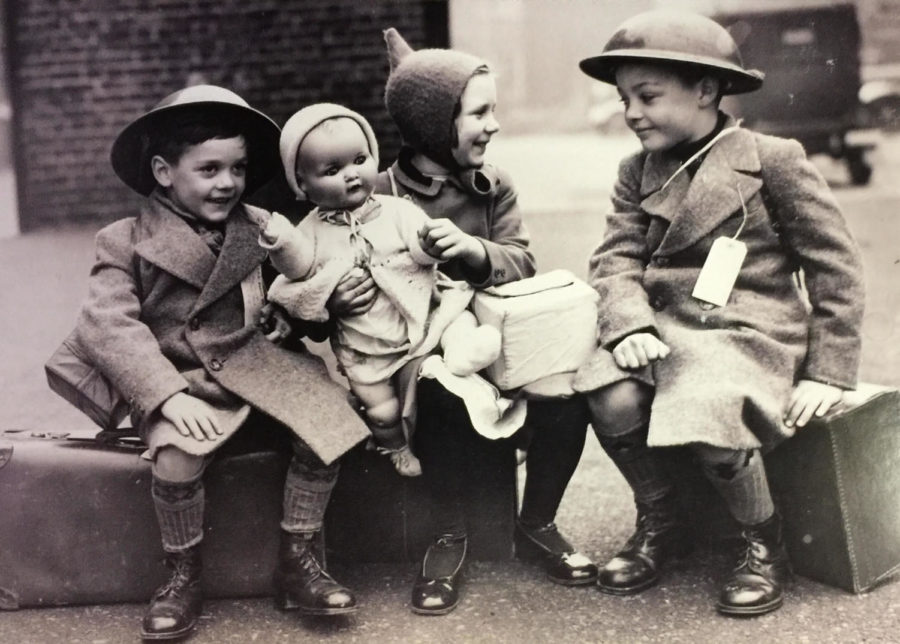1940s–Halloween
November 19, 2019
Pre-war Halloween looked vastly different than Halloween during or after World War ll. In the early 1900s, Halloween was celebrated by thespians performing short, gruesome skits for the public. After the war began, and men started being sent to very real gruesome deaths, it became inappropriate to continue the tradition. Over the years, it had become common for children to spend Halloween evening with couples whose kids had gone to war. In place of trick or treating were parties and parades. Although sixteen-year-old Maria Bernard had outgrown silly costumes and get-together, she still visited the elderly woman across the street.
Maria’s fingers cringed away from the chilly, lion-headed, door knocker. Slipping the sleeve of her wool jacket over her numb fingers, she grabbed the knocker once more. Three loud knocks of metal on wood cut through the laughter of children running through the neighborhood. Maria turned. Tall, brick, townhouses lined the street as far as her eyes could see; ancient oak trees loomed over the streets, their massive roots tearing up the sidewalks. A light sprinkle of snow littered the ground, glimmering in the porch-lights.
Children of all ages roamed the sidewalks, visiting friends, family, and parents. A young girl holding a doll perched on a suitcase. Two little boys dressed as soldiers sat next to her smiling and laughing.
Maria saw the lights flickering in the window of her house across the way. The woman she and Elizabeth were living with was slightly odd, and took no particular interest in the girls. She spoke hardly at all except to inform them that her name was Sal, short for Sally. Her townhouse was minimally furnished with white walls and grey flooring, very unlike the cozy homes back in London. When the girls asked, Sal maintained that one day it’s absence of character would become a fashion.
“Just wait and see,” she would tell the girls. Her lack of personality made Maria uncomfortable; even worse, it made her miss her family. Sometimes, she wondered where they were, what they were doing, and when she would see them again.
Sal had informed the girls several days ago that the lady who lived at the big house across the way had a tragic past. According to Sal, her husband had died in the first world war and her only son was now a prisoner of war in Germany.
Just then, the door creaked open, making Maria jump. In the doorway stood a hunched woman, a wide smile spread across her wrinkled cheeks. A sense of accomplishment overcame Maria. In just coming to the door to say hello, she had brightened the day of this lonely widow. Although people traditionally celebrated Halloween in honor of the dead, it was now a day which lifted the spirits of the living.






jswander • Nov 26, 2019 at 8:47 am
The new character, Sal, is quite intriguing! Great writing style in this series!